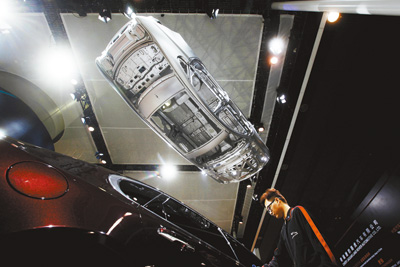
CHINA’S vehicle sales in January grew at their slowest pace in almost a year, an industry association said yesterday, as a tax cut on small-engined vehicles was rolled back and the Lunar New Year holidays weighed on demand. China’s auto sales edged up 0.2 percent in January from a year earlier to 2.52 million vehicles, the China Association of Automobile Manufacturers (CAAM) told reporters in Beijing, the weakest since February 2016. That compares with a 9.5 percent increase in December and a 16.6 percent rise in November. Chen Shihua, a spokesman for CAAM, said the national holiday period and policy changes regarding vehicle purchase tax has had an impact on monthly sales. Several global automakers have reported that sales growth in China, the world’s largest auto market, slackened in January because of fewer working days with the Lunar New Year holidays and the purchase tax on cars with engines of 1.6 liters or below being increased to 7.5 percent from 5 percent in 2016. The tax returns to 10 percent in 2018. Dates of the Lunar New Year holiday vary each year, causing a distortion in sales data. This year, the holiday straddled the months of January and February, while last year the holiday fell entirely in February. Last month, the association said it expects China vehicle sales to grow 5 percent in 2017, a marked slowdown from a 13.7 percent rise last year that was supported by a deeper tax cut on small-engine cars. Sales growth for battery electric and plug-in hybrid cars also dropped last month as the government requires all automakers to re-apply for their models to receive subsidies under a stricter regime following allegations of subsidy cheating. Sales of new energy vehicles recorded a 74.4 percent fall for the month, compared with a rise of 53 percent in the same period last year.(SD-Agencies) | 
